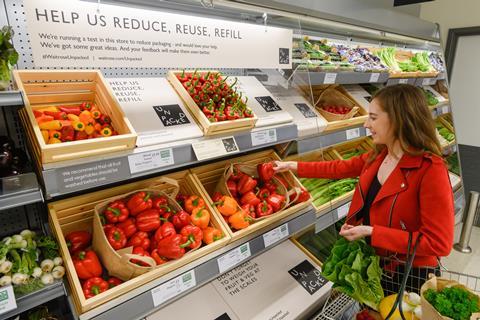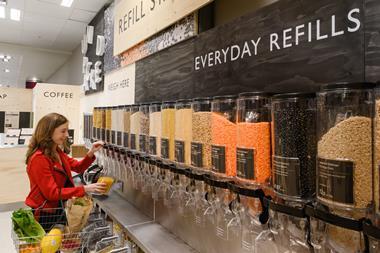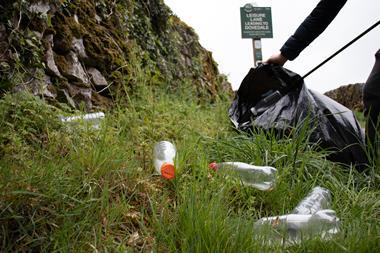B Corp certification indicates that a company meets high standards of social and environmental performance, helping to differentiate your business from its competitors.

The retail market is tougher than ever. Consumers are also more conscious of the impact of their consumption and there are growing environmental pressures to reduce packaging and food waste.
B Corps are businesses that balance profit with purpose. Like a Fairtrade stamp on coffee, B Corp status indicates that a company gives as much weight to its social and environmental impact as it does to its financial returns.
There are currently 2,836 B Corps globally, with brands such as Patagonia and Ben & Jerry’s certified, along with Innocent and Propercorn, which are among the 199 B Corps in the UK.
Recently, Waitrose has embraced the movement, launching an online B Corp aisle, where customers can shop for 47 products across 19 B Corp-certified brands.
“Waitrose has embraced the movement, launching an online B Corp aisle”
Two iconic UK retailers, Cook and JoJo Maman Bébé, are both B Corp certified. Both best in class in their respective markets (homemade frozen meals and mother and baby), these companies are brilliant examples of profitable businesses that serve a wider purpose.
Of the four impact score areas (governance, workers, community and environment), both companies have their highest marks in community, followed by workers.
The B Corp framework forces a distinct focus on the pillars of a company, which can help identify areas to improve.
One example area is workers. The framework prompts businesses to implement initiatives that make its people feel not just valued but deeply engaged. This can increase productive efficiency and reduce costly churn.
Whether you are considering B Corp status or not, it’s clear that more and more businesses, including your competitors, will take the B Corp leap. Below are five key benefits we are observing:
- It can drive growth. Research by non-profit B Lab UK, whose initiatives include B Corp certification, shows that being a B Corp can drive above-average growth. More broadly, Unilever’s 26 ‘sustainable living’ brands (which include B Corps Ben & Jerry’s and Pukka) grew 46% faster than the rest of the business and delivered more than 70% of Unilever’s growth in 2018.
- It can attract talent. ESG (environmental, social and governance) is not just informing more consumer choices. Employees too are prioritising making a difference over traditional financial rewards. If you want to attract and retain the best talent, mixing profit with purpose provides a differentiator.
- It can help win trust. Consumers, in particular the media-savvy younger generations, are well informed and sceptical, and demand ethical commerce. B Corp certification gives authenticity to any sustainable branding message, as social and environmental performance, transparency and accountability are part of a B Corp’s DNA.
- It’s got investor appeal. Not all private equity houses are solely focusing on financial returns. Pressure from their limited partners to consider ESG issues in their portfolio companies means that B Corps are attractive assets. There is also the highly active and growing impact-investor community, solely focused on purpose-led profit-making businesses.
- It generates a competitive advantage. Through the assessment process, B Corp businesses have to take a good look at themselves, as well as their position relative to their competitors. Obvious benefits include a clearer brand positioning and so a stronger competitive advantage.
In the words of Ben & Jerry’s director of social mission Rob Michalak: “The B Impact Assessment added a new twist to our initiatives. It helped us understand where we are in comparison to other companies.”
Now the question remains for you: to B or not to B?
Isabella Fox is an ICAEW chartered accountant in PwC’s Consumer M&A Corporate Finance team
Please contact Isabella Fox for a discussion around B Corps here.
Click here for more insights into the world of B Corps, including steps to take to become one.




























